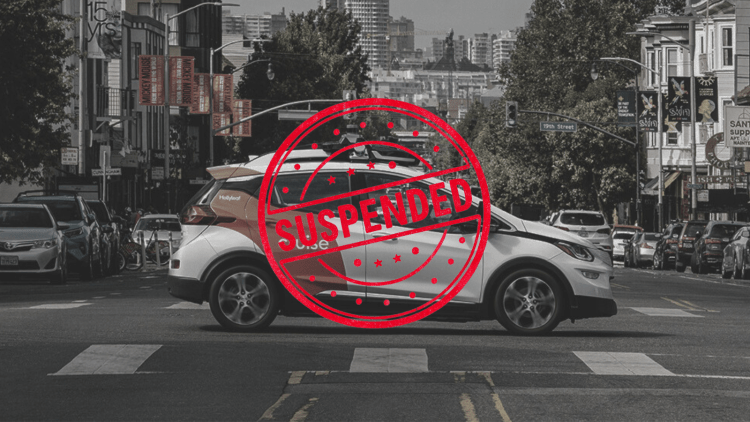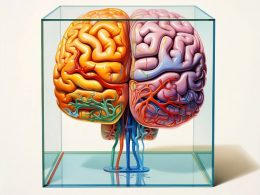Driverless cars from General Motors (GM) subsidiary Cruise, built on the 2021 acquisition of startup Voyage, have become a common sight in San Francisco, where the company is testing and offering the nation’s first paid driverless ride-hail service in a major metropolitan area.
However, Cruise’s plans have hit a major roadblock with the California Department of Motor Vehicles (DMV) announcing the immediate suspension of Cruise’s driverless car testing and deployment permits, citing “unreasonable risk to public safety.”
As the Cali DMV wrote on its website: “Public safety remains the California DMV’s top priority, and the department’s autonomous vehicle regulations provide a framework to facilitate the safe testing and deployment of this technology on California public roads. When there is an unreasonable risk to public safety, the DMV can immediately suspend or revoke permits. There is no set time for a suspension. The California DMV today notified Cruise that the department is suspending Cruise’s autonomous vehicle deployment and driverless testing permits, effective immediately. The DMV has provided Cruise with the steps needed to apply to reinstate its suspended permits, which the DMV will not approve until the company has fulfilled the requirements to the department’s satisfaction. This decision does not impact the company’s permit for testing with a safety driver.”
The Cali DMV cited several violations made by Cruise, including “The manufacturer has misrepresented any information related to safety of the autonomous technology of its vehicles,” and “Any act or omission of the manufacturer or one of its agents, employees, contractors, or designees which the department finds makes the conduct of autonomous vehicle testing on public roads by the manufacturer an unreasonable risk to the public.” However, these violations are vague and could apply to any number of specific scenarios. The DMV did not provide further details about the suspension on its website.
Vice Media obtained the full Order of Suspension letter sent by the Cali DMV to Cruise and published it online. It alleges that Cruise withheld a portion of video evidence from the DMV of one of its driverless vehicles colliding with and dragging a pedestrian at least 20 feet across the street on Oct. 2 at 9:30 pm local time. Cruise disputes this allegation and claims to have shown authorities the full video of the incident on Oct. 3.
“A pedestrian was struck while in the crosswalk by an unknown third-party vehicle and fell into the path of a Cruise Autonomous Vehicle (AV). The AV initiated a hard-braking maneuver and came to a complete stop. During the course of performing the hard-braking maneuver, the AV collided with and ran over the pedestrian. After coming to a complete stop, the AV subsequently attempted to perform a pullover maneuver while the pedestrian was underneath the vehicle. The AV traveled approximately 20 feet and reached a speed of 7 mph before coming to a subsequent and final stop. The pedestrian remained under the vehicle.”
The letter also states that Cruise may request a hearing before the Cali DMV director by submitting a letter to the agency within 60 days. Cruise posted a statement about the incident on its website, claiming to have proactively shared information with the California DMV, California Public Utilities Commission, and National Highway Traffic Safety Administration, including the full video.
Despite the suspension, Cruise has reportedly suspended its entire service, even rides with safety drivers, in San Francisco. The company emphasizes that its focus is on developing and deploying autonomous vehicles to save lives.
Controversies and Challenges
Cruise’s decision to turn San Francisco into a testbed for driverless cars has faced criticism and controversy. The company has been accused of multiple vehicles lining up and blocking streets, hindering passage and emergency responders. Activists and pranksters have even placed orange construction cones on the hoods of the vehicles, causing them to automatically stop.
Cruise is not the only driverless car company testing AI-powered vehicles without human drivers on the streets of San Francisco. Google spinoff Waymo also received a permit to test and charge for driverless rides. With Cruise suspended, Waymo becomes the only option for members of the public looking to order paid, fully driverless rides.
Automaker Tesla also offers a “Full Self-Driving” service, but it operates at Level 2 autonomy, requiring the driver to remain alert and ready to take over. However, Cruise and Waymo are pursuing higher levels of autonomy (Level 3 and 4) that allow passengers to sit back and let the vehicle drive without direct intervention.
Business Setback for Cruise and GM
Aside from the risks and damage caused by the recent incident, Cruise’s suspension presents a significant setback for the company and its parent company, GM, from a business perspective. In its latest earnings report, GM attributed losses of $732 million to Cruise for that period alone, with reported total losses of $1.9 billion year-to-date. Additionally, a major GM manufacturing plant in Texas is currently on strike by the United Auto Workers union.










